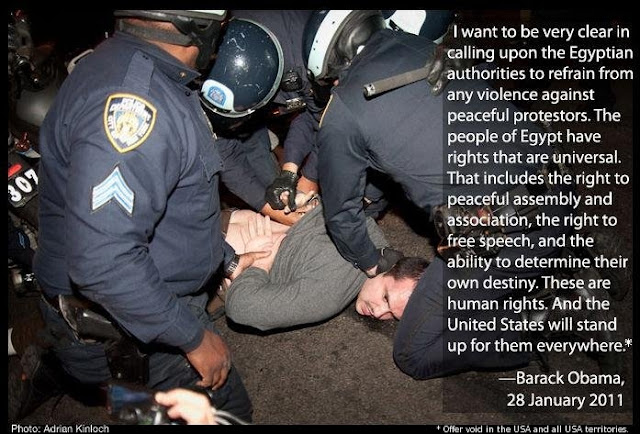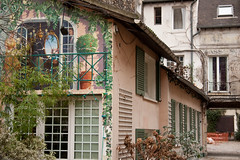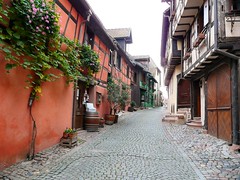As my wife and I are moving to Paris, I had to jump through some hoops to apply for a « visa de long séjour » (long stay visa). This is the first time I'll be using the fact that I'm married to an EU national to facilitate a move to a new country.
First, we had to go to Brussels, Belgium, to apply for the visa at the French consulate because, apparently, the one in Amsterdam does not handle this process (grr ...). After a quick chat to verify that we were really married, I was asked six questions to assess my understanding of French culture. These were basic questions like "can a woman vote?", "does a woman need her husband's permission to open a bank account?" and so on. These questions, as far as I can tell, are mostly targeting those from cultures where women do not have the same rights as men.
 |
| Brussels Central Station memorial to railway workers who died during WWI and WWII. |
As we left, we took the train from Bruxelles Central and saw the "Aux 3012 cheminots mort" memorial you see the image. I can't help but wonder how Germans feel, traveling all over Europe and getting a constant reminder of how many people have died because of their country. Though it's not spoken of as much as it used to be, it's a common theme which one gets reminded of in Europe: the continent is integrating to ensure these wars do not happen again.
Yesterday I was in Brussels at L'Academie française de Bruxelles Europe for the French language test. To be honest, I was worried. Intellectually I knew that it probably wasn't a problem, but all I had to do was choke a few times and I could fail it. From what I understand, if I had failed it, my visa would be delayed and I'd have to take 40 hours of French to brush up my knowledge. If I failed it again, my visa would still be approved (under EU law, it's very hard to deny it if I'm married to an EU national), but I'd have to take 400 hours of French classes once in France. Fortunately, those classes would be paid for by the French government, but almost all of my free time is spent writing my book, so having to attend 400 hours of French classes would make it impossible to fulfill my book contract. I could not risk failing this test.
Once I got to their offices, I was asking my way to the registration desk when, to my surprise, the lady I was asking directions from asked me to switch to English because she didn't speak French very well. Once I arrived at the proper place, I sat down to read Les trois mousquetaires (en français facile) while nervously waiting for a test which could make my life very difficult.
I received 100 out of 100 points. If you've spoken French with me before, you may be surprised by that, but this is how easy the French OFII language test is. It's not a barrier the French have erected to keep people out; it's an honest assessment of the minimum French you need to know to survive.
The process: after having the test explained to me (in French, of course), I was asked to just speak for a while in French. I explained I was nervous because the test was important for my family, that I already had a job in Paris, when I learned French, and so on.
After speaking well enough to satisfy my examiner, she fanned out many versions of the written test face down. I picked one at random. The top part just had me filling in my name, date of birth, current date, and so on. Then I had to complete some sentences with five words they supplied, list 5 to 10 items I could buy in a clothing shop and one other easy task which escapes me right now.
 |
| Sorry Germany, Belgian beers are the best |
Before I left Brussels, I decided to have lunch. That's when tragedy struck. I made a mistake I have made several times before in Europe: I decided to try a Tex-Mex restaurant.
For me, eating at a European Mexican or Tex-Mex restaurant is the gustatorial equivalent of picking a scab. Once I get it in my mind, I just have to do it, even though I know I'll probably regret it. The Chi-Chi's Tex-Mex restaurant in Belgium was no exception. I had their €11 lunch buffet. Buffets are never as good as a properly prepared, but they give you a variety and I wanted to see if anything they offered was tasty.
It was crap. All of it was crap. In all of my time in Europe, I've only eaten at two decent "Mexican" restaurants. One was the Arizona restaurant in Camden Town (since closed down and even then it wasn't authentic) and the other is central London. When Europeans say they don't like Mexican food, it's because they've never had it. The food was so incredibly awful that I actually felt bad for the people walking in. I wanted to walk around to different tables and explain that I was from Texas and please don't judge us on the basis of the slop on their plate. The food was, in short, embarrassing.
The one interesting thing about the restaurant, though, was a sight I've seen several times before in various European countries. A young black guy walked in and he was dressed, for lack of a better word, "gangsta". He had his thick jacket, sagging jeans, unlaced running shoes, baseball cap askew, plenty of bling. And he politely asked for a table for one in perfect French.












